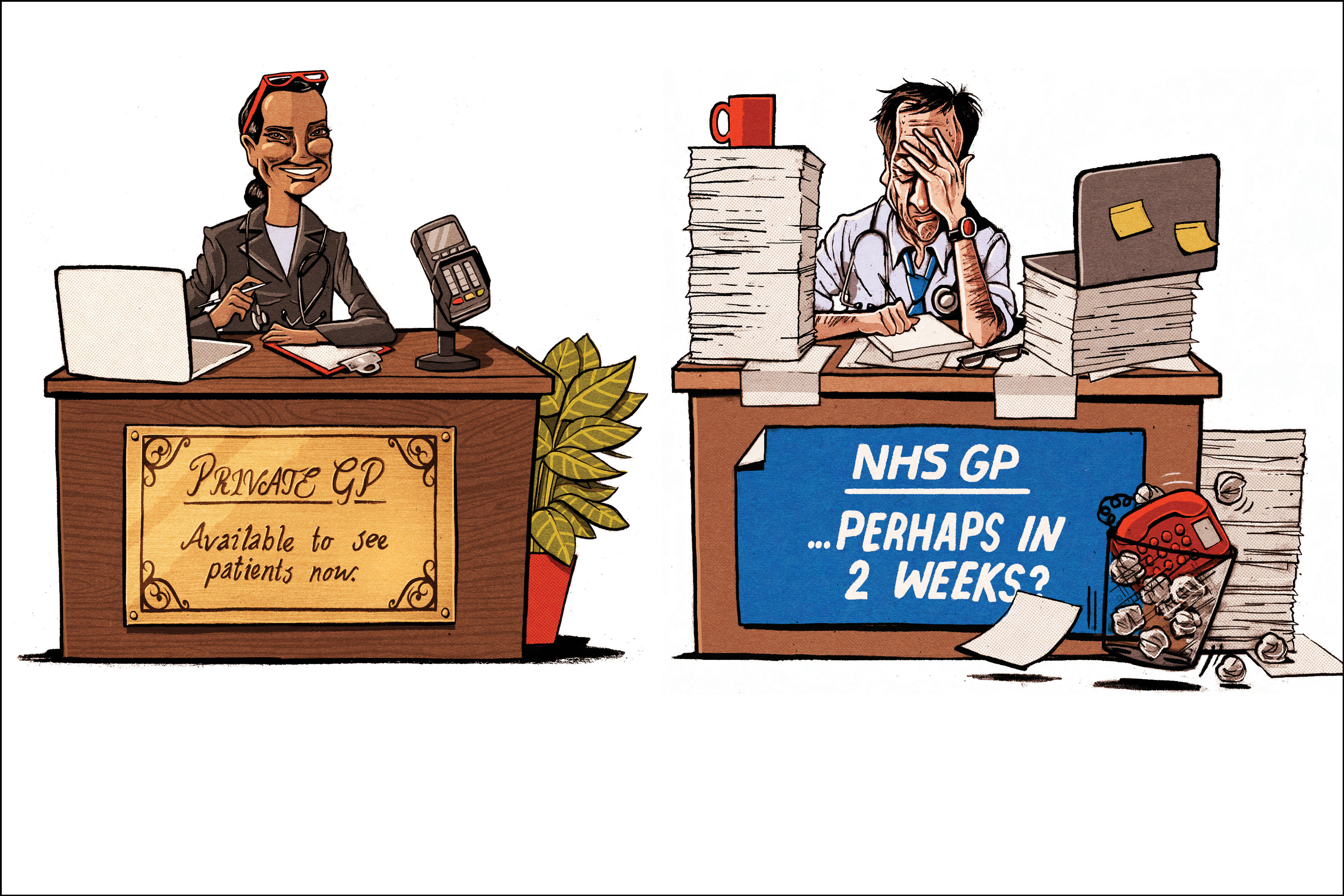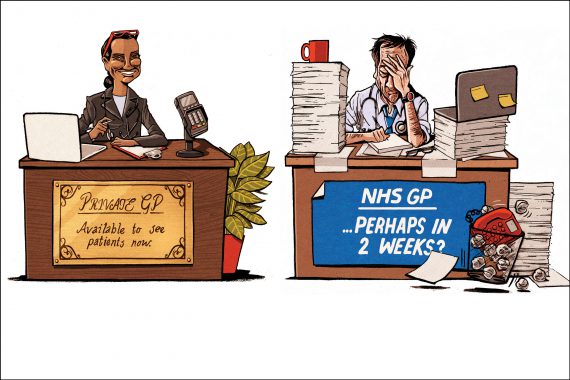
nov2016 nhs appointments SUO 3×2
The private sector is increasingly looking to expand its offering in primary care as the pressures on GPs increase.
Several new private GP services – mainly using smartphone apps or online consultations – have sprung up in the past year, offering rapid, convenient appointments for people who do not want the hassle of booking an appointment at their GP practice.
The companies, often headed up by GPs themselves, are even being employed by some practices to reduce waiting times and relieve pressure.
The private providers claim they are helping drive down waiting times – and that there wouldn’t be any demand for them if it weren’t for the lengthening waits for appointments in NHS general practice.
A Pulse survey earlier this year found that the average waiting time for an appointment had increased to almost two weeks.
Among the new providers taking advantage of the access problems within general practice is Doctaly, which is preparing to expand its ‘Uber-style’ GP service nationwide, after a successful pilot in two north London boroughs.
The Doctaly service doesn’t employ GPs itself, but is the first reported online service matching NHS GPs with patients who are prepared to pay a fee – between £40 and £70 – to avoid the usual wait to see their GP.
Company founder Ben Teichman says: ‘It is not about queue jumping – quite the opposite in fact. It should help drive queues down in surgeries and also take traffic away from A&E. An A&E appointment can cost the NHS £150 and if access wasn’t an issue, many of these patients could be successfully treated by a GP.’
Another company expanding from its London origins is GPDQ, an app allowing patients to book a home visit within 90 minutes for £120, or £150 at weekends.
North London GP Dr Anshumen Bhagat set up the service. He employs around 40 GPs, who cover most of central London, and is now expanding to Birmingham.
He says: ‘Patients benefit from speed and flexibility, with the ability to see a doctor when and where it suits them, booking and tracking their GP through their smartphone.’
Unlimited GP access
Babylon’s GP app service – providing medical advice and video consultations ‘at your fingertips’ – recently hit the headlines, with its presence at last month’s annual RCGP conference leading to newspaper reports GPs were being lured to work privately by the offer of tens of thousands of pounds of extra income.
Under the service, patients can opt to buy unlimited GP access by paying a subscription of £5 a month, or pay £25 for a one-off consultation.
Two practices in Essex have even been outsourcing appointments to Babylon, and told Pulse they had cut waiting times by roughly a week, from three weeks to two.
Longstanding players in the market include Push Doctor, which has a network of 7,000 GPs offering 10-minute consultations via a video link for £20, and Dr Now, which charges £5 a month for access to e-consultations and next-morning delivery of prescriptions.
The major private healthcare chains are also looking to expand their GP offering. The Private Healthcare UK Self-Pay Market Study 2016[1] says: ‘Most major private acute providers now offer a private GP service… this may also be driving growth in self-pay diagnostics and subsequent self-pay admissions.’
Elsewhere, Nuffield Health has just teamed up with app-based service Doctor Care Anywhere so corporate clients can book virtual GP appointments 24/7.
But GP leaders are concerned about the implications. RCGP chair Dr Maureen Baker insists ‘access to a GP should never be dependent on a patient’s ability to pay’, and says these models will not solve the ‘intense pressures facing general practice’.
A letter to Pulse from a number of doctors says: ‘Our greatest worry is being forced into a two-tier system, whether our profession wants it or not.’
Others, though, welcome the opportunities for GPs and patients. Family Doctor Association chair Dr Peter Swinyard says the services are ‘perfectly reasonable’ provided patients know they have to pay for prescriptions and GPs ensure they are fully indemnified.
‘Even if takes 2% of the worried well, who rather like a dose of the doctor but don’t actually have much of a medical need, then that’s all to the good.’
Is taking on private work a good idea?
What am I allowed to do privately as a partner/principal?
There are no specific restrictions as long as you provide your contracted level of service to your NHS patients. If the practice offers weekday service from 8am to 6:30pm, plus contracted extended hours, the NHS can’t stop you seeing private patients.
However, if you derive more than 10% of your entire gross practice income from private work of any sort your rate reimbursement is abated – and it can be a significant abatement. But any work outside the practice will not incur these penalties.
Salaried GPs’ ability to do private work is determined by their contracts.
Can I see patients in my own practice?
Yes. If you have an NHS surgery from 8:30am to 12:30pm, you can see some private patients during that time as long as you are offering a reasonable number of NHS appointments.
Is there any time I am prevented from seeing private patients?
During extended hours you are not allowed to offer private appointments.
Can I see my own patients privately?
You cannot see those registered with your practice on a private basis at any time. This is to prevent conflicts of interest and applies only to GPs and not to any other branch of the profession.
Will it affect my indemnity?
Not usually – talk to your indemnity provider. It will depend on how many hours you are likely to be working and how many patients you are likely to see.
What do I need to keep in mind?
You have to be more aware of customer service. Some people will consult privately because they know what they want, and you might be under pressure to give them this, rather than what you think they need. Also NHS prescriptions are not available for people you see privately.
Dr Peter Swinyard is chair of the Family Doctor Association and a GP in Swindon
Reference
1 Private Healthcare UK. Self-Pay Market Study 2016. Available to purchase from: tinyurl.com/selfpay-study
Please note, this was changed at 13:50 on 26 October 2016 to reflect that Push Doctor offers 10-minute consultations via a video link for £20, not £25 as first stated
Pulse October survey
Take our July 2025 survey to potentially win £1.000 worth of tokens













